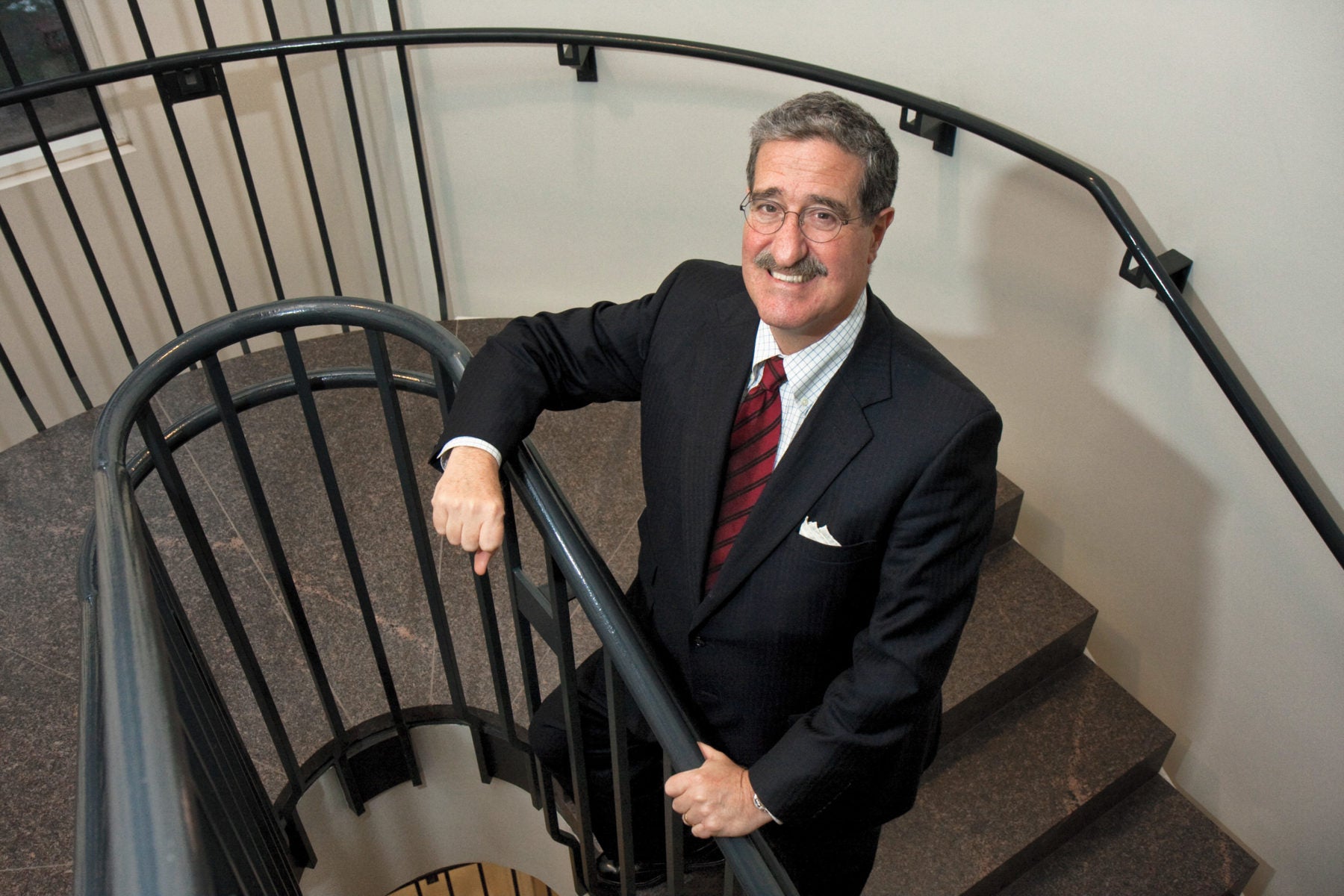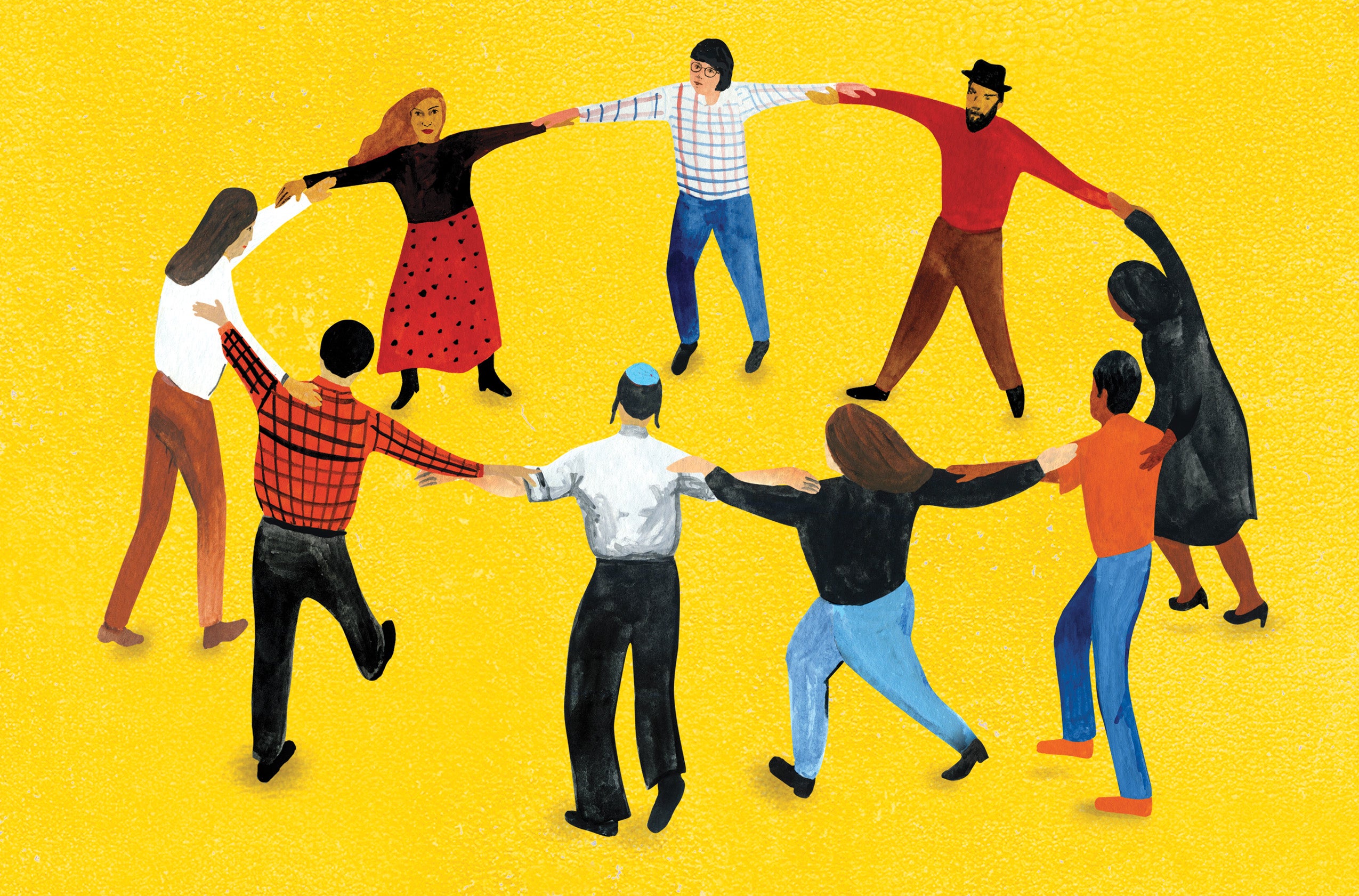Many years ago, HLS Professor Robert Mnookin ’68 and his wife, Dale, attended a dinner party with the famed psychologist Erik Erikson, whose work focused on identity. Erikson asked Dale what kind of name “Mnookin” was. When she told him it was from a Hebrew word, he asked whether she was Jewish. She replied that she was, and Erikson said, “You don’t look Jewish.”
Robert and Dale Mnookin never had any doubt that they are Jewish. But the question of who should be considered Jewish can be surprisingly tangled and fraught. That question is at the heart of Robert’s new book, “The Jewish American Paradox: Embracing Choice in a Changing World.” For him, Jewish identity doesn’t mean having a Jewish name or looking Jewish or having a Jewish mother or even attending a synagogue. He argues for a more simple and open standard: Someone who is willing to publicly identify as a member of the Jewish people is a Jew.
The book stems from Mnookin’s own personal journey of Jewish identity. Born in 1942 and raised in Kansas City, he was not—nor is he now—particularly religious, but he was aware of having a connection to the few Jewish people in his community. At the same time, he never drew attention to his religion, eager to fit in and assimilate. His older daughter, Jennifer, took a different stance when she demanded a bat mitzvah, much to the surprise of her parents, who hadn’t bothered to join a temple. And much to his own surprise, when he became a grandparent, Mnookin found himself fervently wishing that his grandchildren would be raised Jewish.
He also realized that his once “passive form of being Jewish,” as he describes it in his book, may not be enough to ensure that his wish would come true. Indeed, part of the paradox of the book’s title relates to the fact that anti-Semitism and discrimination against Jews have declined in America during his lifetime, but that positive development may also diminish the cohesion that has bound the Jewish community in the face of oppression.

“In the 2,000 years since the diaspora, there’s never been a country or a time when Jews have been so well integrated successfully as in America,” Mnookin said in an interview. And yet at the same time, he added, “there’s great anxiety about whether the American Jewish community is on the decline and will reasonably soon disappear.”
He proposes the inclusive standard of self-identification—what he calls a “big tent” standard—that he says will enrich the American Jewish community. While Jewish subgroups should be free to establish their own standards, he says, basing Jewish identity solely on religious practice would exclude the majority of American Jews who are not religiously observant.
Notably, the big tent includes children and spouses in families of intermarriage, a major topic of his book. Mnookin critiques the tradition of determining Judaism based on whether one’s mother is Jewish, calling it both under-inclusive (rejecting those devoted to Jewish life) and over-inclusive (insisting that someone is Jewish regardless of their own choice). He also notes that in recent years the intermarriage rate among U.S. Jews has climbed to more than 50%, whereas a century ago intermarriage rarely occurred. Rather than fight this trend, which has alarmed many in the Jewish community, he calls for acceptance of families who seek to engage in Jewish life.
“I think the attempt today in America to try to discourage intermarriage is a fool’s errand,” he said. “The issue instead should be focusing on the next generation and embracing these families, to make it easier for these couples to participate in the community and raise the children to think of themselves as Jewish when one parent is not going to convert.”
“I think the attempt today in America to try to discourage intermarriage is a fool’s errand.”
Robert Mnookin
He offers advice on how to raise Jewish children, including tips on negotiating with non-Jewish or nonreligious partners (Mnookin’s academic research and writing have been focused on negotiation). To facilitate a Jewish connection, parents can incorporate Jewish rituals, education and social groups into their children’s lives, he writes. He also advocates cultivating a connection to Israel, although he makes clear in the book that does not mean uncritically accepting its government’s policies.
Grandparents too can play a role in helping to raise Jewish children, as Mnookin well knows. In his Harvard Law office, he displays a couple of photos of his grandchildren. They are several years older now, and Mnookin notes that the youngest of them is now 13. The boy’s mother is Mnookin’s younger daughter, Allison, and his father is a “lapsed Episcopalian” who is not particularly religious. The youngest grandchild’s name, one that decidedly does not sound Jewish, is Cornelius Olcott VI. He had his bar mitzvah last year.
